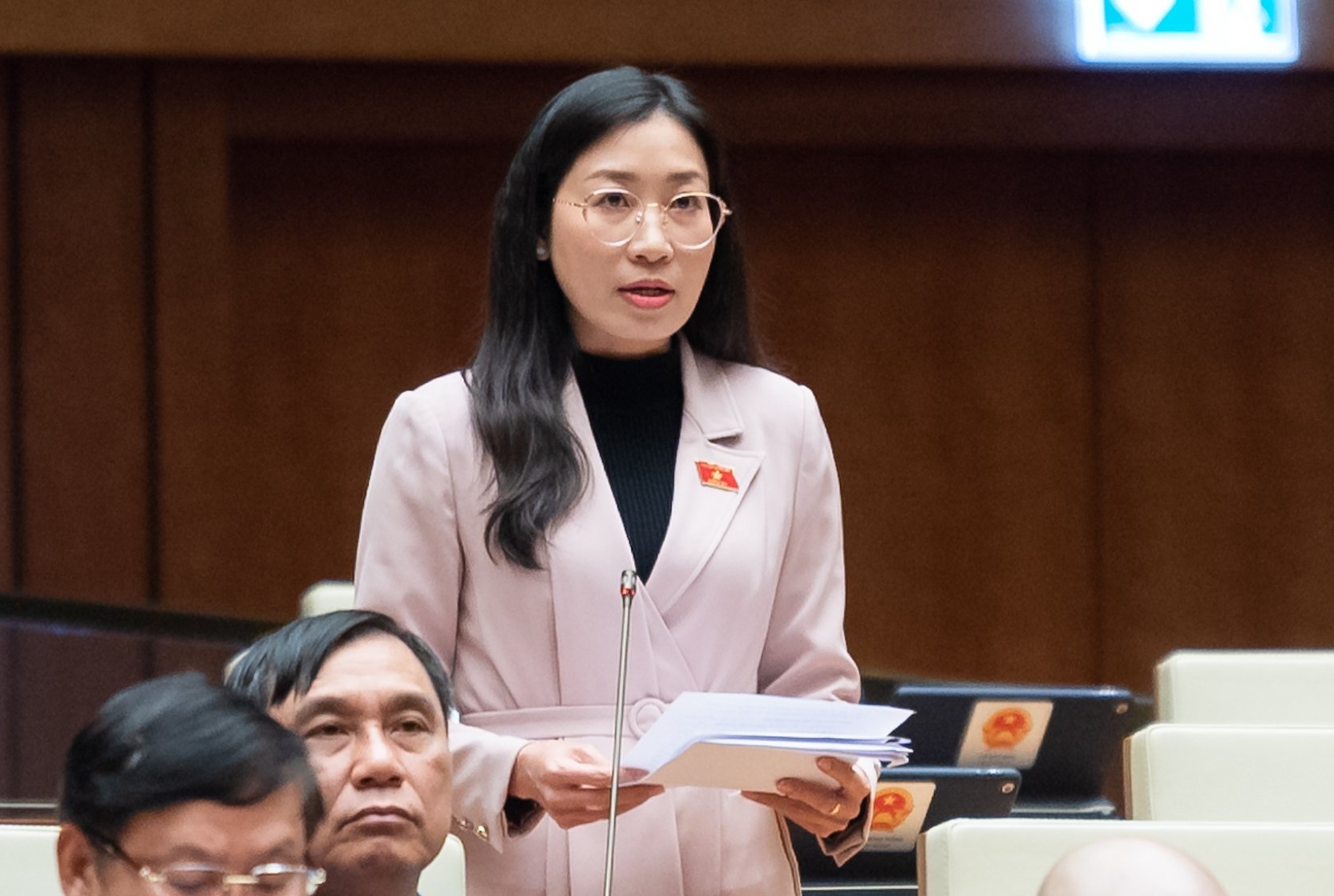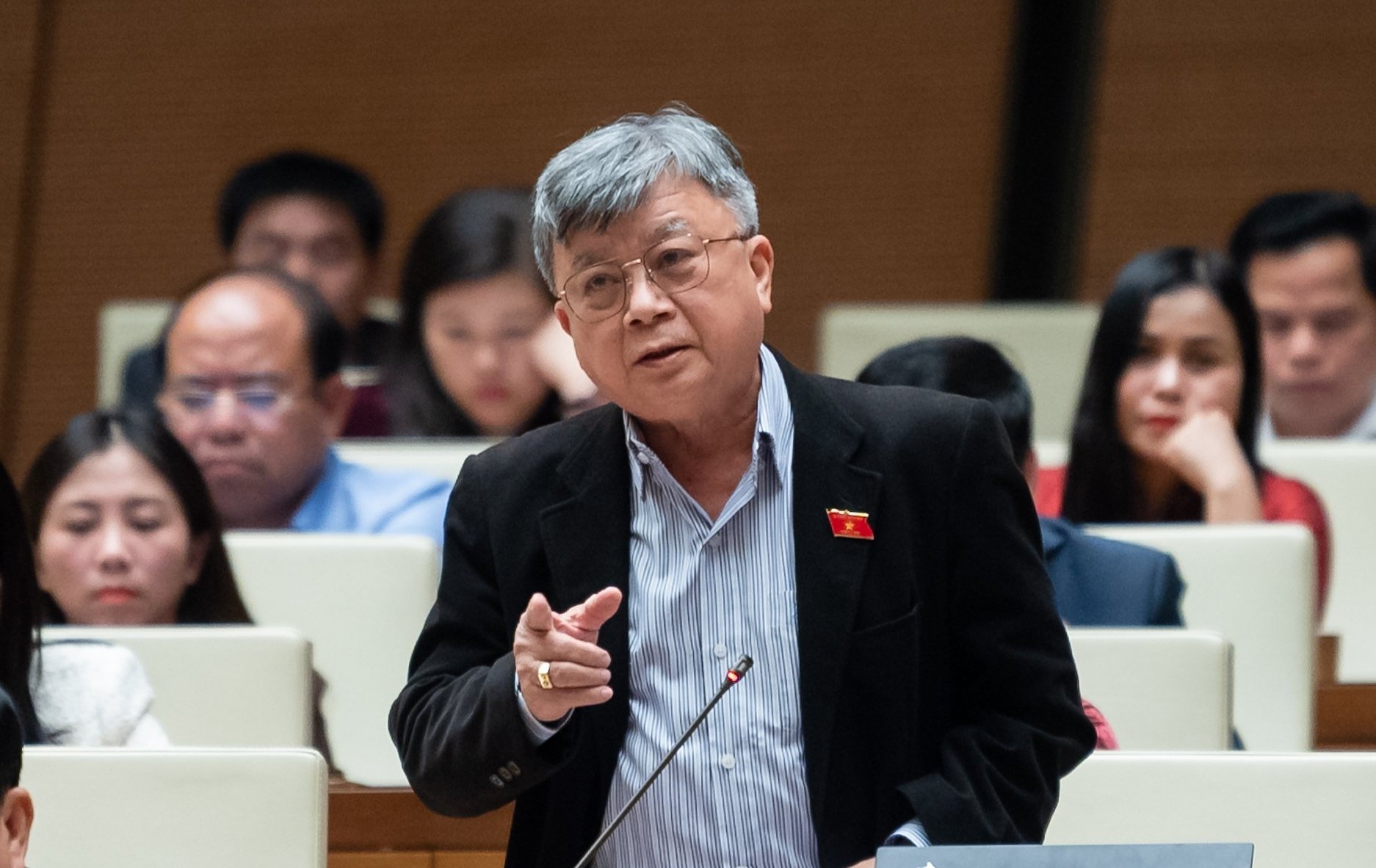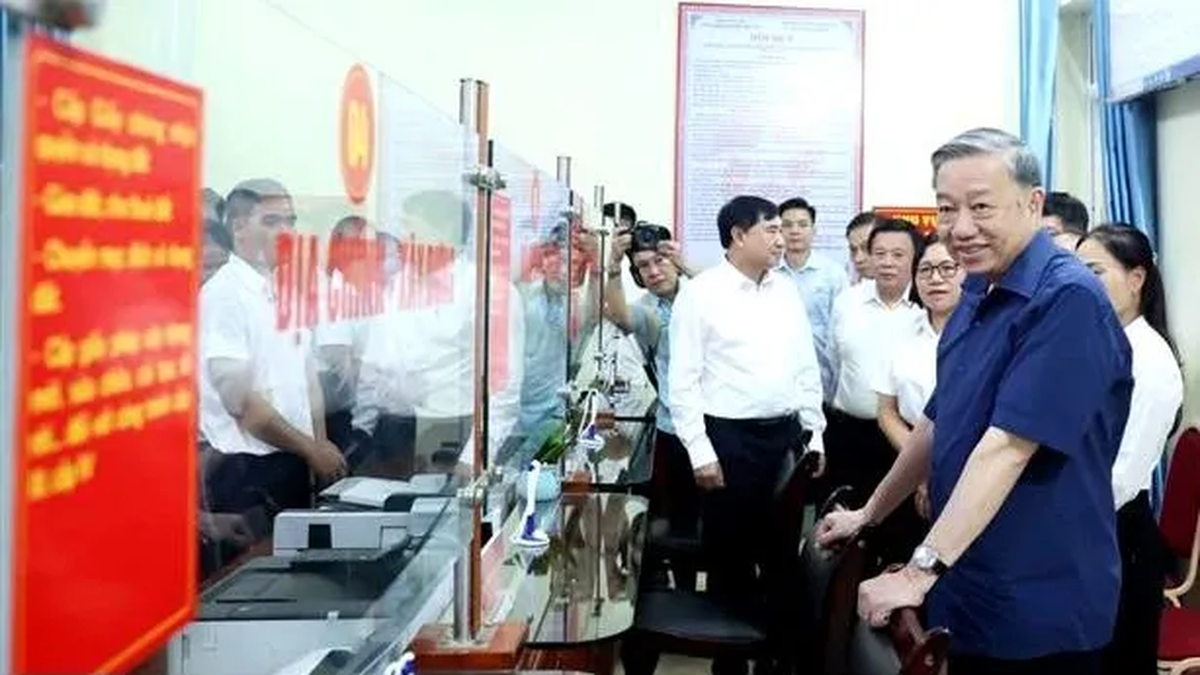On the afternoon of November 20, the National Assembly discussed in the hall the application of additional corporate income tax, according to regulations against erosion of the global tax base.
Delegate Hoang Thi Thanh Thuy ( Tay Ninh delegation) pointed out that according to the provisions of the Investment Law, foreign investors can file a lawsuit to continue enjoying incentives and paying global minimum tax in the parent country.
Ms. Thuy said that according to the investment guarantee regulations in the current Investment Law, if the state has a lower incentive policy, the investor will enjoy the incentive for the remaining period of the project. This means that when the global minimum tax policy is applied, there is a possibility that the enterprise will file a lawsuit to apply the investment guarantee regulations.
From there, Ms. Thuy suggested that the resolution should provide detailed regulations to reduce the possibility of lawsuits by taxable enterprises, while also defining the principles for resolving complaints when they occur, ensuring that the State does not suffer losses.

Delegate Hoang Thi Thanh Thuy, Tay Ninh delegation (Photo: Quochoi.vn).
Also expressing concern about the arising of disputes, delegate Truong Trong Nghia (HCMC delegation) asked what regulations would be followed in resolving disputes and which organization or agency would handle them in case of a dispute.
"Dispute resolution is according to Vietnamese law or international law, and is the exclusive jurisdiction of Vietnamese courts or international courts. Regulations on dispute resolution through negotiation, conciliation, arbitration and court need to be clearly defined," Mr. Nghia stated.
Furthermore, in case of a possible dispute, investors may choose to pay taxes elsewhere, causing Vietnam to lose this source of revenue. Therefore, Mr. Nghia believes that there should be a handling mechanism to avoid conflicts with the provisions of the Investment Law.
From there, the delegate suggested that detailed instructions should be issued soon when the resolution is passed by the National Assembly so that taxable enterprises can arrange their investments, financial and accounting books, and state agencies can also arrange to access the new things of the Resolution.

Delegate Truong Trong Nghia, Ho Chi Minh City delegation (Photo: Quochoi.vn).
Explaining at the end of the discussion session, Minister of Finance Ho Duc Phoc affirmed that the issuance of the Resolution on global minimum tax is to determine the State's right to tax and bring benefits to the country.
Regarding concerns about the possibility of businesses filing lawsuits when the tax is applied, the Minister of Finance said that when the National Assembly issues a resolution, the Ministry of Finance will work with 122 businesses subject to the tax to "prepare mentally".
"I think it is very unlikely that a lawsuit will result. Because if a business does not pay taxes in Vietnam, it must pay taxes abroad. Paying taxes abroad is much more complicated because foreign tax authorities must also come to Vietnam to collect taxes," said Mr. Phuc.
Regarding incentives stated in the investment certificate, Mr. Phuc said that the investment certificate cannot state tax incentives because tax incentives must be implemented according to the provisions of tax law.
"Recently, some localities' Department of Planning and Investment issued investment certificates with tax incentives, which is incorrect. We have responded in writing and instructed the Department of Planning and Investment to implement it correctly and consistently," said Mr. Phoc.
Regarding new investment incentives along with the addition of global minimum tax, Mr. Phoc said that the Government has assigned it to the Ministry of Planning and Investment and this Ministry has reported to the National Assembly Standing Committee.
"The National Assembly Standing Committee is requesting revisions within a very short time to ensure investor rights," said Mr. Phuc.
The global minimum tax is an agreement reached by G7 countries in June 2021 to combat multinational corporations shifting profits to low-tax countries to avoid taxes, effective from January 1, 2024. The tax rate will be 15% for multinational enterprises with a total consolidated revenue of 750 million euros (about 800 million USD) or more in two of the four most consecutive years.
The UK, Japan, South Korea, and the EU will impose the tax in 2024. Vietnam also plans to impose this tax from 2024.
According to the General Department of Taxation, there are about 122 foreign corporations investing in Vietnam that are affected by the global minimum tax. If the countries with parent companies all apply the tax from 2024, these countries will collect an additional tax difference of about more than VND 14,600 billion next year .
Source

































































![[Photo] National Assembly Chairman Tran Thanh Man receives Chairman of Morocco-Vietnam Friendship Association](https://vphoto.vietnam.vn/thumb/402x226/vietnam/resource/IMAGE/2025/7/26/b5fb486562044db9a5e95efb6dc6a263)



































Comment (0)